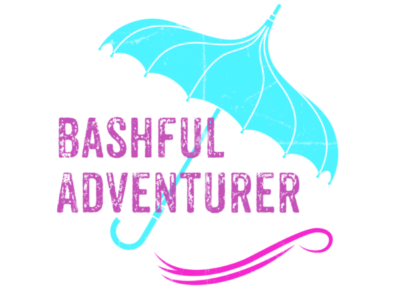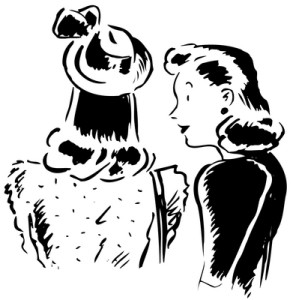I pick up Alice Steinbach’s Without Reservations: The Travels of an Independent Woman (Random House, 2000) at North Salem, N.Y.’s Ruth Keeler Memorial Library book sale, so I don’t have a lot of money invested in it. The first 20 pages or so really annoy so that I wonder whether I should stick with it, so much so that I find myself scrutinizing the cover, front and back, trying to figure out how this author was successful, how she got this precursor of Eat, Pray, Love published when the first pages are so full of drivel about her “utter astonishment” at checking in at a hotel in “the world’s most beautiful city,” a place where, on a night walk, she watches “the moon struggle through a cloudy night sky.”
This work was published before the Great Recession, but surely publishing couldn’t have been so excessive that it would allow an entire book of this to go to press, right? How did Alice Steinbach succeed? She was a writer, or a columnist, or something at the Baltimore Sun. Seemingly in her early 50s for the course of the book, divorced, an empty nester, she’s just not the young flush demographic (25 to 40) so much of the book biz seems to hanker for.
So far in Without Reservations, and I’m pretty far along, how exactly Steinbach is funding this adventure goes unexplained. She indicates that money is tight, but she’s gotten a sabbatical from her paper, and that leads me to another riff—on sabbaticals in the corporate world, how do they work, what does that term mean? Is it synonymous with ‘leave of absence’? Does it just mean that you are promised your job back when you return? Or are you just assured of a comparable job? Or just a comparable paycheck? Is health insurance included during? It couldn’t possibly mean you keep drawing your salary, could it? Could it?
While I’m flipping this book around and around and ruffling the pages and cutting ahead to see if this could possibly get better and looking at the front matter, and the back, and searching to see if I can find the author on Twitter, or her webpage, or anywhere, I note that Dominick Dunne has written a blurb, and then I remember reading recently about how no one really pays attention to blurbs so here I am reading that blurb over and over again and wondering if I’m just paying attention because I’ve learned that no one pays attention, and then I am thinking that if Dominick Dunne bothered with this book, maybe I should, too.
Not that Dominick Dunne would be my personal arbiter, but at least he’d surely think this book was worth yakking about, worth schlepping to the beach, or in a book bag on the subway, or somewhere. Then I’m off on the credibility of Dominick Dunne and thinking about how I really love the fiction of his brother John Gregory Dunne and of course just everything ever thought about by his sister-in-law Joan Didion and I’ll confess to reading a number of Dominick Dunne’s books, in hardback, in the ’90s and being drawn to his Vanity Fair stories and I’m still wondering what in the hell he sees in this crap about Paris, and so I stick with it.
And then somewhere after reading about long nights walking through Parisian streets, I begin to like Alice Steinbach, and I see that those crappy first pages are like the crappy first hours a tired traveler, transported in a flying bus, spends in a place feeling like she’s getting ripped off by a taxi driver even though she wasn’t possibly up for taking the bus, where is the map, the cross street, how do you know when you’re even close? And then after she’s slept, or you’ve slept, and had some coffee and some cookies you feel better and you soldier on and inevitably it gets good. You realize she is good.
What I like is how Steinbach mentions picking up new friends for an afternoon, for a journey, a few dinners, knowing that this will be the duration of the friendship but enjoying that short time together and being more candid than one would be were you in your hometown making overtures to strangers. On home turf, one must court prospective friends, woo them, try to persuade them to like you, even possibly love you, before mentioning those jobs you were fired from, or that bad incident in third grade when maybe you were just a little bit of a kiddy bully, or how you might have been a better spouse if you just hadn’t liked vodka so much.
Strangers on a train you might possibly be able to tell everything, shortly, and they’ll tell you their secrets, and you’ll each revel in the disclosures and enjoy them but should they become too appalling you can just whip out your handy travel memoir with its ghastly first pages and then get to know it better. Friends for one day might learn more about you than friends you’ve had for years, and you might have no regrets about that. What I regret is that I didn’t find this little book sooner, while Alice Steinbach was still alive, so I could tell her how much I like it.
—Lori Tripoli
Looking for more books about travel?
You might like these posts:
A Book about Adventures in Travel at an Uncertain Time
Reading while Traveling: The Improbably Adventures of a Middle-Aged Woman
Tony Horwitz, A Voyage Long and Strange, Columbus Day, Pocahontas, Etc.




